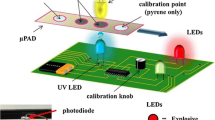Abstract
In The Social Construction of Reality, Berger and Luckmann discuss experts. They contrast the stabilizing monopoly traditionally enjoyed by “universal experts” with the destabilizing competition of a modern pluralistic society. “When a particular definition of reality comes to be attached to a concrete power interest, it may be called an ideology.” The current institutions of forensic science illustrate the claim that monopoly in expertise is associated with political power. Applying the analysis of universal experts in The Social Construction of Reality to forensic science provides useful insights into forensic science as a social phenomenon.
Similar content being viewed by others
Further Reading
Akerlof, G. A. 1970. The market for ‘lemons’: Quality uncertainty and the market mechanism. Quarterly Journal of Economics, 84(3), 488–500.
Berger, P., & Luckmann, T. 1966. The social construction of reality. New York: Anchor Books.
Berger, V., Matthews, J. R., & Grosch, E. N. 2007. On improving research methodology in clinical trials. Statistical Methods in Medical Research, 1–12.
Cole, S. 2007. Where the rubber meets the road: Thinking about expert evidence as expert testimony. Villanova Law Review, 803, 819–824.
Friedman, R. 2003. Squeezing Daubert out of the picture. Seton Hall Law Review, 33, 1047–1070.
Gestring, Brian. 2009. The Dawn of the ‘Forensic Science Provocateur.’ CAC News, 1st quarter 2009: 25–28.
Grann, D. 2009. Trial by fire. The New Yorker, 7 September 2009. Downloaded 7 September 2009 from http://www.newyorker.com/reporting/2009/09/07/090907fa_fact_grann?currentPage=all.
Greene, S., & Moffiet, M. 2007. Bad faith difficult to prove. The Denver Post, 22 July 2007. Downloaded 28 January 2009 from http://www.denverpost.com/evidence/ci_6429277.
Kennedy, D. 2003. Forensic science: Oxymoron? Science, 302(5651), 1625.
Koppl, R. 2010. Organization economics explains many forensic science errors. Journal of Institutional Economics, 6(1), 71–81.
Koppl, R. 2005. How to improve forensic science. European Journal of Law and Economics, 20(3), 255–286.
Koppl, R., & Cowan, E. J. 2010. “A battle of forensic experts is not a race to the bottom,” with E. J. Cowan Review of Political Economy, forthcoming.
Koppl, R., Kurzban, R., & Kobilinsky, L. 2008. Epistemics for forensics. Epistmeme: Journal of Social Epistemology, 5(2), 141–159.
Mills, S., & Possley, M. 2004. Texas man executed on disproved forensics: Fire that killed his 3 children could have been accidental. Chicago Tribune, 9 December 2004. Downloaded 27 January 2005 from http://www.chicagotribune.com/news/nationworld/chi-0412090169dec09,0,1173806.story.
NAS Committee on Identifying the Needs of the Forensic Sciences Community. 2009. Strengthening forensic science in the United States: A path forward, National Academies Press, http://www.nap.edu/catalog.php?record_id=12589.
Nichols, R. G. 2007. Defending the scientific foundations of the firearms and toolmark identification discipline: Responding to recent challenges. Journal of Forensic Science, 52(3), 586–594.
Office of the Inspector General. 2008. Review of the Office of Justice Programs’ Paul Coverdell Forensic Science Improvement Grants Program. U.S. Department of Justice.
Pyrek, K. M. 2007. Forensic science under siege: The challenges of forensic laboratories and the medico-legal death investigation system. Amsterdam: Academic.
Risinger, M. 2007. Innocents convicted: An empirically justified factual wrongful conviction rate. Journal of Criminal Law and Criminology, 97(3), 761–806.
Saks, M., & Koehler, J. J. 2005. The coming paradigm shift in forensic identification science. Science, 309, 892–895.
State of Maryland v. Bryan Rose, Memorandum Decision, 19 October 2007, Circuit Court for Baltimore County, K06–545.
Thompson, W. C. 1995. Subjective interpretation, laboratory error and the value of forensic DNA evidence: Three case studies. Genetica, 96, 153–168.
Thompson, W. C. 2009. Painting the target around the matching profile: The Texas sharpshooter fallacy in forensic DNA interpretation. Law, Probability and Risk, 8(3), 257–276.
Thompson, W. C., & Cole, S. A. 2007. Psychological aspects of forensic identification evidence. In M. Costanzo, D. Krauss, & K. Pezdek (Eds.), Expert psychological testimony for the courts (pp. 31–68). Mahwah: Erlbaum.
Thompson, W. C., & Dioso-Villa, R. 2008. Turning a blind eye to misleading scientific testimony: Failure of procedural safeguards in a capital case. Albany Journal of Science and Technology, 18, 151–304.
Turner, S. 2001. What is the problem with experts? Social Studies of Science, 31(1), 123–149.
Willingham v. State, 897 S.W.2d. 351, 357, Tex.Crim.App. 1995.
Author information
Authors and Affiliations
Corresponding author
Additional information
For helpful discussion I thank Peter Berger and participants in the Peter Berger Symposium of September 9–13, 2009. I thank The Fund for the Study of Spontaneous Orders at Atlas Economic Research Foundation for the opportunity to participant in the Berger Symposium.
Rights and permissions
About this article
Cite this article
Koppl, R. The Social Construction of Expertise. Soc 47, 220–226 (2010). https://doi.org/10.1007/s12115-010-9313-7
Published:
Issue Date:
DOI: https://doi.org/10.1007/s12115-010-9313-7




